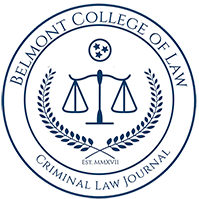State of Tennessee v. Lynn Frank Bristol, No. M2019-00531-SC-R11-CD (Apr. 6, 2022).
Written By: Max Pafford, Associate Editor
The Supreme Court of the State of Tennessee considered the case of Lynn Frank Bristol, a man convicted of two counts of aggravated sexual battery. After the trial court denied a motion for a new trial, Bristol appealed the matter to the Court of Criminal Appeals. The Court of Criminal Appeals ultimately granted an order for a new trial, but not on any issue preserved in the trial court or presented before the Court of Criminal Appeals by either party. The case was remanded for a new trial due to an apparent discrepancy between the oral jury instructions and the written ones, with notable definitions seemingly missing from the written instructions.
After hearing of the discrepancy, the State petitioned for rehearing, stating that the original appellate record had no less than 16 missing pages from the actual, written jury instructions. Those pages contained the “missing” definitions. After the State requested remand to the trial court to clarify which set of instructions had been given to the jury, Bristol responded that “certification of the original appellate record conclusively settled any discrepancy. . .” With these competing claims, the Court of Criminal Appeals directed the trial court to prepare a supplemental record, with the entire written and submitted jury charge. When the trial court clerk certified and submitted a record, the Court of Criminal Appeals denied the State’s rehearing petition because certification and submission by the clerk did not show that the trial court, itself, had settled the discrepancies.
At this juncture, the State sought to appeal to the Supreme Court, which first confirmed with the trial court that the second, longer set of instructions had actually been submitted to the jury. The State claimed error by granting relief on an issue unpreserved and unpresented without first giving the parties fair notice and an opportunity to make their case. Examining the issue of abuse of discretion, the Supreme Court agreed with the State, reversing the Court of Criminal Appeals, and reinstating the convictions. The Supreme Court held that the Court of Criminal Appeals abused its discretion in considering an unpreserved, unpresented issue “without giving fair notice and an opportunity to be heard on that issue.”
The Court’s reasoning was split into three major parts: first, discussion of the limitations on appellate review and the extent of the discretionary authority, second, examination for abuse of that discretionary authority, and third, settlement of the matter of discrepancies between the written and oral jury instructions. Identifying two general principles of appellate review, the Court noted: appellate courts are generally limited to those issues presented to it, and jurisdiction is limited to the matters decided in lower courts. The Court determined that both principles serve the adversarial system and promote efficiency, fairness, accuracy, and the appearance of impartiality.
Nevertheless, courts are given some discretion, but, when exercising it, courts must give the parties notice and an opportunity to present their case on the discretionary issue. “At a minimum, an appellate court must give the parties notice of the specific issue it intends to address and sufficient time to review the record, conduct research, and prepare an argument before the court rules on the issue.” Additionally, the Court noted, that “[r]equiring a party to address an issue for the first time in a petition for rehearing after the court has already ruled is inadequate.”
This case puts down a strong marker for how appellate courts in Tennessee can examine unpresented and unpreserved issues going forward. The general manner in which the Court discussed appellate authority heavily implies that the standard issued here extends beyond the context of the criminal courts as well. In future cases, appellate courts and parties have a clear guidepost as to what is required from an appellate court seeking to raise a discretionary, unpresented, unpreserved issue. “Supplemental briefing ordinarily will be” best, but the important thing is that a party has opportunity to “meaningfully address an issue” prior to a court’s ruling.
